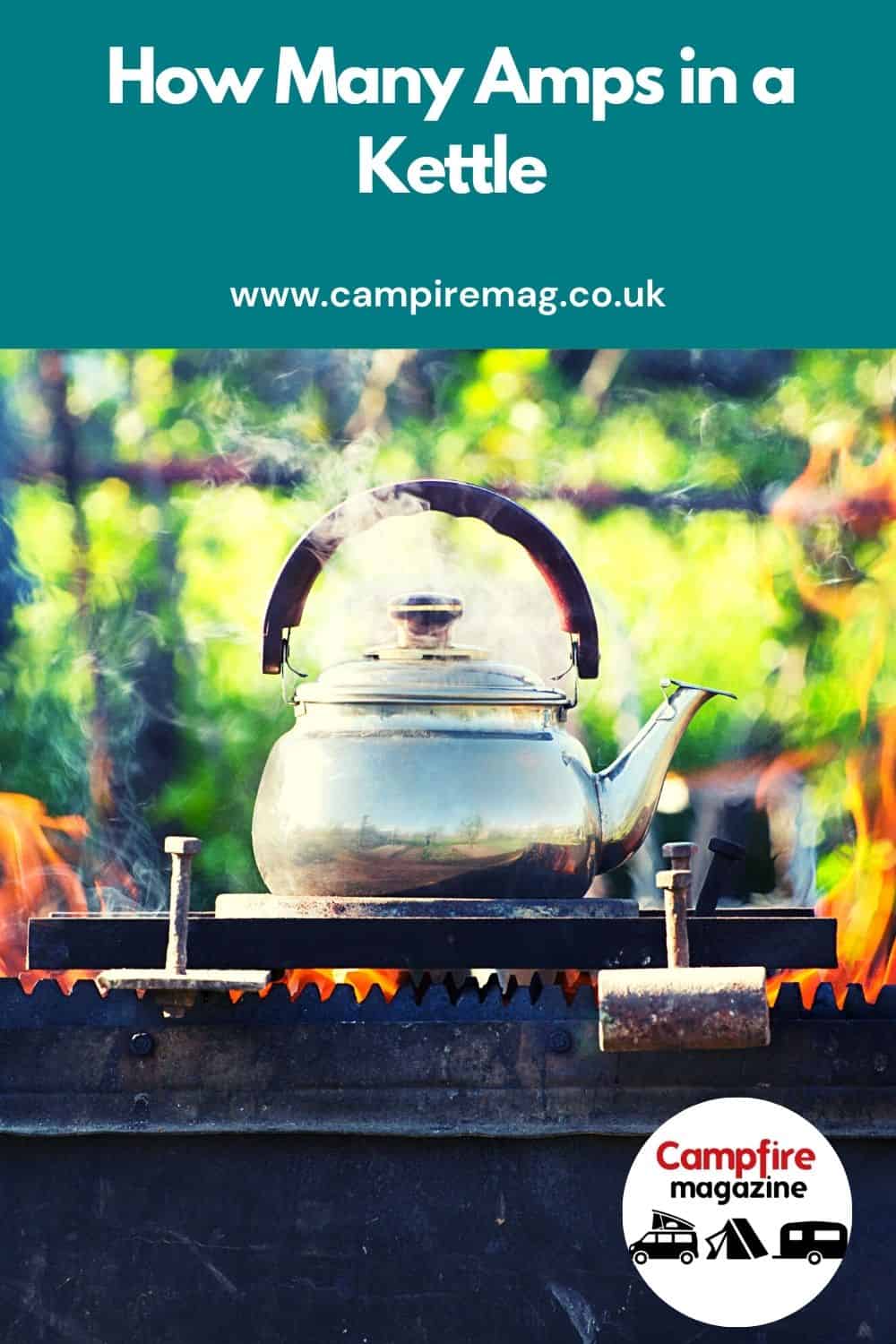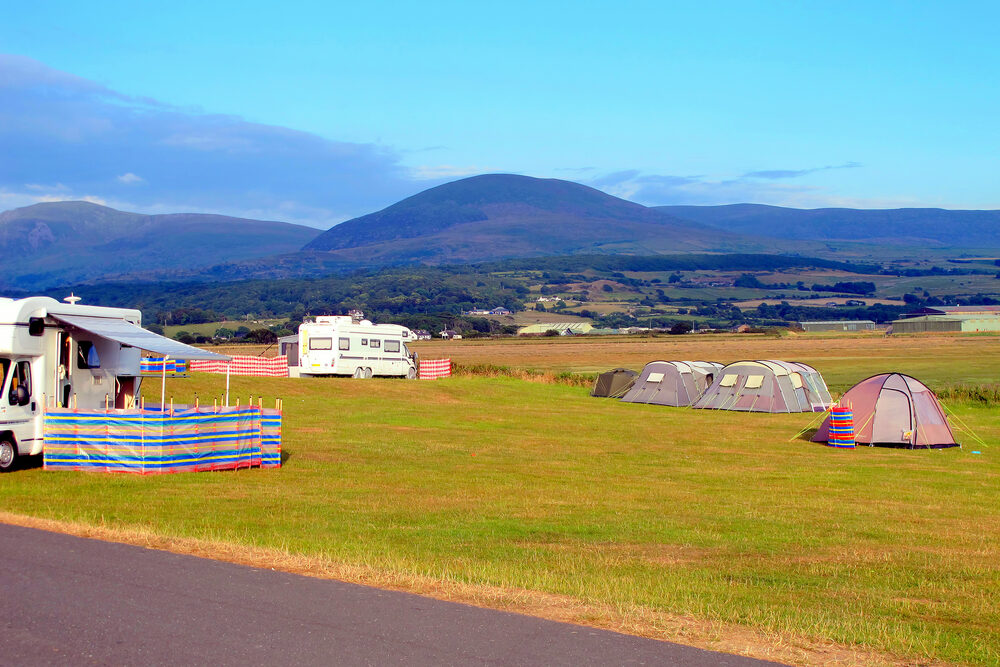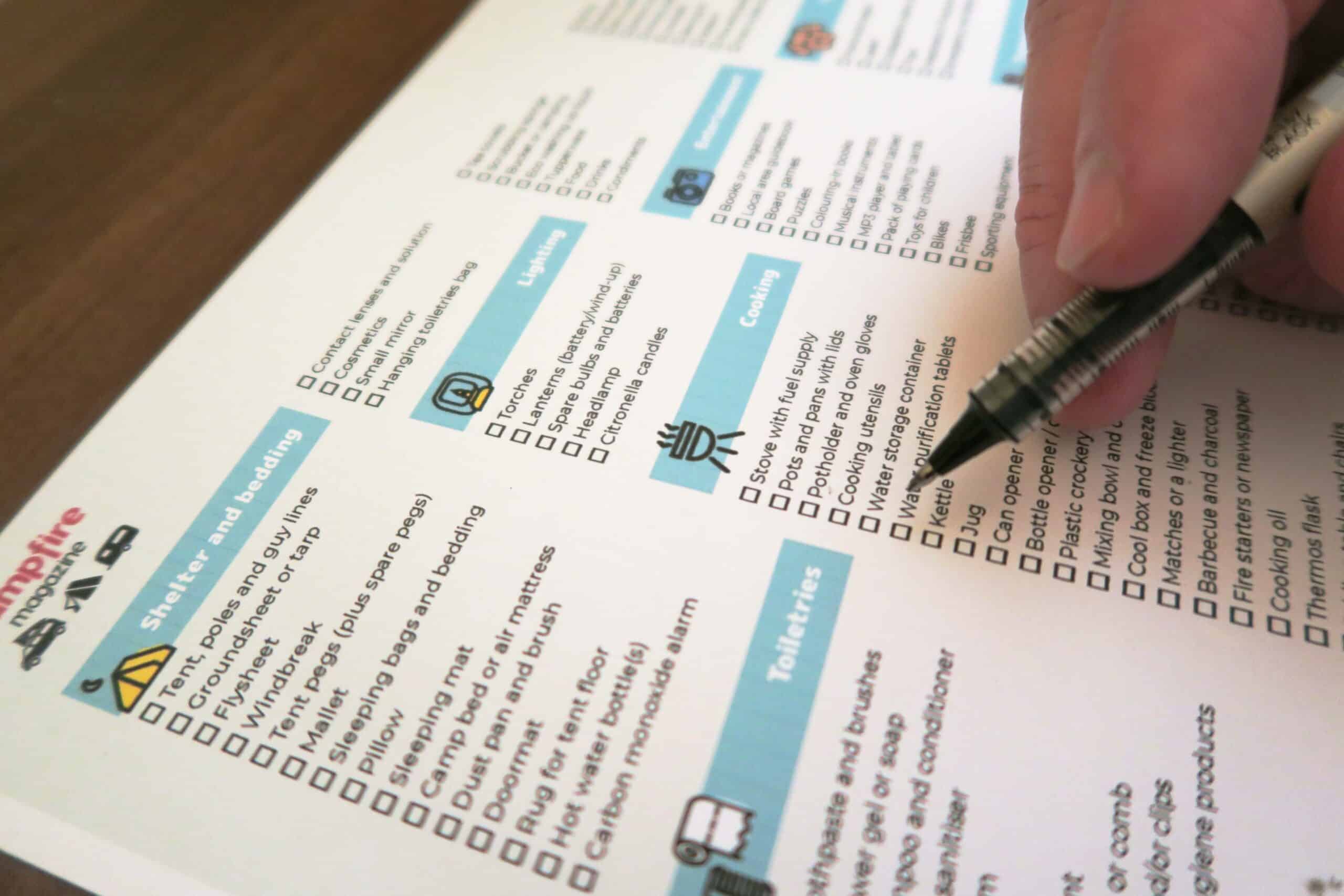Camping doesn’t have to mean leaving all those creature comforts behind and doing things the traditional way. With a huge number of campsites offering electric hook ups and the option to use things like generators, you can take your appliances on the go.

It is, however, important to make sure that you are using the right type of equipment so as not to overload your power supply. Surprisingly, a household kettle is quite a powerful appliance so when you’re camping, it might not be the best choice.
There are camping kettles available that run at a much lower wattage; where a household kettle is around 2000 watts, the camping alternative is less than half of that at 750 watts.
In this short guide, we will explain everything you need to know to make your cuppa while camping as safely as possible.
Number Of Amps In A Regular Kettle
Household kettles are among some of the most power hungry appliances in your kitchen, relatively speaking. There are some that can go up 3000 watts and 13 amps. However, generally speaking, your kitchen kettle will be somewhere around the 2200 watt mark.
Camping kettles are much less demanding when it comes to their power supply and usually have around 750 watts.
OUR TOP PICK
Why Do Amps And Watts Matter On The Campsite?
Different campsites have different levels of power supply. However, the most common is a 10 amp supply which gives you around 2.3kW. There are some campsites with just a 5 amp hook up while others have a whopping 16 amp hook up. These numbers can all sound very confusing but once you get to grips with the basics, it’s actually quite simple.
At the most basic level of understanding, you should know that the more appliances you are running, the more power you’ll demand. But that doesn’t mean you cannot run several appliances at the same time; you just have to make sure that their wattage is lower. The lower the wattage, the more you can run at once.
If you run too many high wattage appliances, or even a larger number of low wattage devices, you run the risk of overloading the power supply. The result; it’ll trip and the power will go off. No matter how many times you reset the switch, the system will keep tripping as long as it is overloaded.
And that is why knowing the number of amps and watts of your appliances is so important. If you’re running a regular kettle, this could easily overload your camping system before you’ve even added anything else. But when you use a low watt camping kettle, you could still run other appliances alongside such as a camping toaster, phone charger and other things without worrying about tripping the power.
With all of that in mind, what you can hook up is by no means infinite. You will need to do a little bit of maths. But it’s not difficult. You just need to add up the number of watts and compare this to the hook up. Don’t go any higher than the system can handle and you’re onto a winner.

What Other Types Of Appliances Have Camping Alternatives?
Your camping kettle is a great alternative to your normal kitchen kettle as it demands far less power. But it isn’t the only device that we would recommend switching up when you’re on the go.
For example, you can get your hands on other kitchen appliances such as camping toasters and even a small camping microwave. These are perfect for camping or caravanning trips where the weather isn’t as reliable and you cannot guarantee being able to cook around the campfire. What’s more, a standard camping microwave is usually only around 600 watts; that’s very low.
For heating your tent, there are plenty of low wattage camping heaters. The wattage of these will vary from model to model but you’d typically expect them to be between 750 and 1000 watts.
Electrical Safety When Camping
While it is brilliant being able to have the benefits of an electrical hook up on your campsite, you have to keep in mind that not using it correctly can be incredibly dangerous. For this reason, we would urge you to adhere to the following safety tips.
Use a correct camping hook up unit. These are relatively affordable and can be purchased online for as little as £50.
You should never use a regular household extension but an IP44 rated RCD.
Ensure your hook up unit does not sit directly on the floor as this can put it into contact with moisture and as we know, water and electricity do not mix.
Always have a mini fire extinguisher in your kit in case of emergencies.
Never overload the power supply.
Before using any electrical devices or appliances, be sure to inspect them to ensure that they are in full and safe working order.
Conclusion
Going camping allows you to get back to nature but let’s face it, we all still want a quick, convenient cup of coffee in the morning. Yes, you could heat up some water over the campfire but that is time consuming. Taking your kettle is far easier but a regular kitchen kettle is a pretty demanding appliance.
Instead, it is best to use a camping kettle along with other appliances designed with lower wattage for just such a situation. You’ll need to find out the number of amps your camping hook up can handle and work out how many appliances you can run at once as well as following some other important safety tips.


